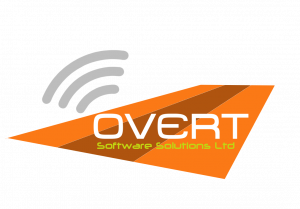In today's rapidly evolving educational landscape, the use of Learning Management Systems (LMS) has become increasingly prevalent. Among the various LMS options available, Moodle-based LMS stands out as a popular choice for organisations seeking a flexible, user-friendly, and feature-rich platform for Continuing Professional Development (CPD). This article explores the numerous benefits of using Moodle LMS as a CPD platform, highlighting its key features and advantages.

Do Businesses Use Moodle LMS?
Before exploring the potential uses of Moodle for businesses, it's important to establish its popularity for business purposes. Originally designed for the education sector, Moodle LMS continues to have a significant presence in that industry. While there's a common misconception that Moodle is primarily for educational institutions, the widespread adoption across various sectors worldwide proves otherwise.
Moodle offers more than just an LMS for Education, thanks to its flexibility, allowing it to adapt to the needs of different organisations. Over time, Moodle has been refined to better suit business requirements. Essentially, this means that companies of all sizes can utilise Moodle to modernise their training processes and effectively train their staff.
Various industries leverage the Moodle Learning Management System (LMS) for their unique needs. Below are some of the industries that utilise Moodle LMS:
Educational and Training Institutions

How do Businesses Utilise Moodle?
Moodle can offer significant flexibility tailored to your business requirements and usage preferences. Certain administrators already possess their own e-learning content and courses, prepared and awaiting delivery, merely requiring a system enabling them to manage and distribute them online.
Others may prefer to procure ready-made content to upload onto their Moodle LMS or construct courses directly within Moodle utilising its user-friendly course building feature.
In terms of the purposes for which businesses employ Moodle, irrespective of content generation methods, there exist a range of training requirements that Moodle can address. Below are a few illustrations:
Compliance Training
Compliance training is not merely an optional feature for Moodle to facilitate; it is an essential requirement for certain businesses. Ensuring that their staff comprehend and adhere to the requisite regulations and policies is paramount, as compliance is fundamental for staff to effectively carry out their roles. Moodle simplifies this process by providing a centralised platform for storing easily accessible records of learner knowledge and progress towards compliance achievement, which can be regularly updated as necessary. With Moodle, proving compliance becomes significantly more straightforward, as there is a clear audit trail to identify and share evidence that employees have undergone and completed the necessary training.
Competency Training
Moodle is also well-suited for organisations where compliance may not be mandatory, but where ensuring that their employees are proficient in their roles is essential for sustained success, both for the individuals and the business as a whole. Moodle aids in developing the skills and knowledge of staff across various roles or specialist areas, thereby reducing the time to competency through enhanced training administration efficiency. By allowing training for different audiences, Moodle facilitates the management of competency training from individual to departmental and even organisational levels with ease.
Continued Professional Development (CPD)
Moodle can also effectively address any skill gaps identified within teams or individual staff members by offering Continued Professional Development opportunities. Organisations can create or procure courses tailored to the specific interests or specialisations of their teams, thereby advancing their learning and development at various levels based on their needs. Continuously training staff beyond initial induction ensures that they become better equipped to perform their roles and are more engaged and loyal to the organisation investing in their personal and professional growth.
New Product and Service Launches
Certain businesses, particularly in sectors like retail, encounter the dual challenges of constantly evolving product and procedural landscapes alongside a frequently changing, seasonal workforce. For these companies, Moodle can significantly save time and administration costs by keeping employees' knowledge current on existing products and swiftly familiarising them with any new products and processes. Prior to the launch of a new product or service, Moodle can deliver the necessary training to facilitate a smooth launch, spanning multiple branches, cities, and even countries. The online accessibility of training ensures that even employees engaged on the shop floor throughout the day can access training at their convenience, from any location, and across various devices.
Moodle LMS: Integrated Learning Solutions and Enhancing Collaborations

User-Friendly Interface:
Moodle LMS offers a user-friendly interface, allowing for easy navigation and seamless access to learning materials.
With self-descriptive navigation features, learners can quickly familiarise themselves with the platform, minimising the need for extensive training.
Ease of Integration:
Moodle-based LMS integrates seamlessly with various business functions within an organisation, including human resource management, compliance, talent management, and more.
The platform enables the sharing of data across different departments and geographic locations, enhancing collaboration and efficiency.
Content Management:
Moodle LMS supports all latest eLearning standards such as SCORM and Tin Can/xAPI, providing flexibility in content creation and delivery.
Users can upload existing documents, videos, and other materials, as well as share resources between courses or learning paths.
Ease of Access:
- Moodle-based LMS features a responsive design, allowing content to adapt to different screen sizes and devices.
- Mobile learning is supported, enabling learners to access course materials anytime, anywhere, enhancing accessibility and convenience.
Blended Learning Features:
In addition to online learning, Moodle LMS supports offline learning experiences, catering to diverse learning preferences and environments.
The platform includes features for tracking, recording, and assessing both online and offline events, providing a comprehensive learning experience.
Assessment and Testing:
Moodle LMS offers robust assessment and testing features, including pre-tests, post-tests, automatic and manual marking, and assessment portfolio storage.
Learners can track their progress and performance, while instructors can analyse exam results and monitor learner engagement.
Reporting and Tracking:
Moodle-based LMS provides extensive reporting and tracking capabilities, allowing administrators to monitor learner progress and course effectiveness.
Data analytics tools enable insights into learner behaviour, exam performance, and course completion rates, facilitating data-driven decision-making.
Security:
Security is paramount in Moodle LMS, with features such as secure sign-in and controlled access to sensitive data.
The platform ensures data integrity and confidentiality, protecting proprietary information and personal data.
Extensive Plugin Library:
Moodle LMS boasts a vast library of over 500 plugins developed by a global community of learners, managers, and administrators.
These plugins enhance the platform's functionality, allowing for customisation and adaptation to specific learning and training needs.
The Key Takeaways
Overall, Moodle-based LMS stands out as a versatile and comprehensive platform for Continuing Professional Development (CPD), providing a multitude of advantages for learners and organisations alike. Its intuitive interface, seamless integration, effective content management tools, and wide range of features position it as the top choice for organisations aiming to bolster their professional development programmes. Furthermore, its open-source framework and active community involvement ensure ongoing evolution and innovation, perfectly aligning with the dynamic requirements of the education and training sector.
Considering the integration of Moodle into your organisation's infrastructure? Contact Overt Software Solutions today!






